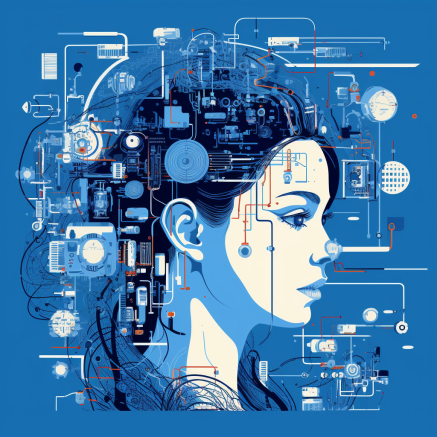The Rise of AI Tools: Transforming Work and Creativity
Artificial Intelligence (AI) has rapidly become a cornerstone of modern technology, influencing various sectors from healthcare to finance, and even creative industries. As organizations and individuals seek to leverage AI’s potential, a diverse array Ai Tools of AI tools has emerged, each designed to streamline processes, enhance productivity, and foster innovation. This article explores some of the most impactful AI tools available today and their implications for work and creativity.
1. AI in the Workplace
a. Automation Tools
AI-driven automation tools are revolutionizing how businesses operate. Tools like Zapier and Integromat allow users to automate repetitive tasks by connecting various applications and workflows. This not only saves time but also reduces the risk of human error.
b. Data Analysis and Insights
Data-driven decision-making is crucial in today’s business landscape. AI tools like Tableau and Power BI leverage machine learning algorithms to analyze vast amounts of data, providing actionable insights. These tools help organizations identify trends and make informed decisions quickly.
c. Virtual Assistants
AI-powered virtual assistants, such as Microsoft’s Cortana and Google Assistant, enhance productivity by managing schedules, setting reminders, and even handling basic inquiries. These tools allow employees to focus on more strategic tasks, enhancing overall efficiency.
2. AI in Creative Fields
a. Content Generation
AI tools like OpenAI’s ChatGPT and Jasper have transformed content creation. Writers and marketers use these platforms to generate ideas, draft articles, and create marketing copy. These tools can produce high-quality content quickly, allowing creators to meet tight deadlines and scale their efforts.
b. Design and Art
In the realm of design, tools such as DALL-E and Canva’s Magic Write utilize AI to assist users in creating visually stunning graphics and illustrations. These platforms allow even non-designers to produce professional-looking materials, democratizing the design process.
c. Music Composition
AI is making waves in the music industry as well. Tools like AIVA and Amper Music enable users to compose original pieces of music using AI algorithms. This not only provides a new avenue for musicians but also offers businesses a way to source unique soundtracks for their projects.
3. Ethical Considerations
While AI tools offer tremendous benefits, they also raise ethical concerns. Issues such as data privacy, algorithmic bias, and job displacement are critical considerations for developers and users alike. It is essential to approach AI implementation with a focus on ethical standards, ensuring that these tools are used responsibly and inclusively.
4. The Future of AI Tools
As technology evolves, so too will the capabilities of AI tools. The integration of AI into everyday tasks is likely to deepen, making these tools more intuitive and user-friendly. Future advancements may lead to enhanced personalization, where AI tools adapt to individual user preferences and workflows, further streamlining processes.
Moreover, as more industries recognize the value of AI, we can expect a surge in specialized tools tailored for specific fields, from education to agriculture. This diversification will provide users with even more options to enhance their work and creativity.
Conclusion
AI tools are reshaping the way we work and create, offering unprecedented opportunities for efficiency and innovation. By embracing these technologies, individuals and organizations can unlock their potential, driving progress in an increasingly digital world. However, it is crucial to navigate the associated ethical challenges carefully, ensuring that the rise of AI benefits everyone. As we move forward, the synergy between human creativity and artificial intelligence will undoubtedly lead to exciting new horizons.
